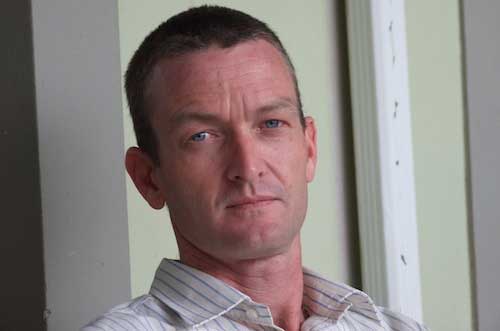
A top regulatory expert has lambasted the Independent Communications Authority of SA (Icasa) over its planned auction of spectrum for wireless broadband services, saying the process is deeply flawed.
Dominic Cull of Ellipsis Regulatory Solutions says there are a number of serious flaws in the process of licensing spectrum in the valuable 2,6GHz and 3,5GHz bands.
Cull’s concerns should be taken seriously, especially given the strategic economic importance of the frequency in question. The mobile operators, for one, stand to make billions of rand from selling services in these new bands.
There’s likely to a particularly wild scramble for spectrum in the 2,6GHz band, where operators will be able to build networks of national scope.
Already, the mobile operators have signalled their interest in bidding for the spectrum so they can begin building networks using “long-term evolution” (LTE), the technological successor to the 3G networks they already operate.
But Cull says Icasa hasn’t thought through the process properly. He says the auction will fail to extend wireless broadband outside the cities and will make it more difficult than necessary for the mobile operators to roll out LTE networks.
And confusion over how the process will work will play into the hands of the incumbent operators, which have more resources to deal with the problems effectively.
The first problem is the way Icasa has provisioned the spectrum, Cull says. It’s planning to auction it off in single, 30MHz chunks. This is well suited to companies wanting to build networks using WiMax, but not those wishing to deploy LTE.
BMI-TechKnowledge researcher Martin Roetter recently criticised Icasa’s decision to structure the 2,6GHz band in so-called “30MHz unpaired channels”, saying it reflects the wishes of the advocates of mobile WiMax.
“Unfortunately Icasa’s decision in this case is far from being in the best interests of the country and its residents,” Roetter says. “It is highly unlikely to foster the goal of achieving the maximum coverage, minimum costs, and highest quality and performance of future mobile broadband services.”
Instead, Roetter says, Icasa’s decision is the “result of shortsighted thinking which has been unduly swayed by arguments from advocates of one specific wireless system”.
Cull says what Icasa should have done with the spectrum is shift the existing holdings in the 2,6GHz band, especially iBurst’s, so that the band could be used for both WiMax and LTE.
He says he is also concerned about the rules governing the 3,5GHz spectrum auction. Only companies with so-called class network licences — those for building networks that are only district or municipal in scope — are entitled to bid for 3,5GHz spectrum. This is a problem as relatively few companies have class network licences.
There are 52 districts in SA, with two licences on offer per district, for a total of 104 licences.
However, there are only about 50 class network licensees in the country. After Altech’s 2008 court victory against former communications minister Ivy Matsepe-Casaburri, many of the smaller Internet service providers have individual (provincial and national) licences rather than class licences.
Also, Cull says few of the class licensees can afford to stump up the R70 000 nonrefundable deposit to participate in the auction and some may struggle to raise the required but refundable R250 000 auction fee. “I don’t know how Icasa thinks that’s going to work,” he says.
Another problem, Cull says, is that Icasa has not published details of how exactly the auction will work. This is creating further uncertainty, he says, and playing into the hands of the incumbents, which have better resources to deal with the lack of clarity.
Then there’s universal service. Icasa requires prospective licensees to cover 50% of the population of their district (in 3,5GHz) or the country (in 2,6GHz) within two years of their being awarded the spectrum. If they don’t, they risk losing the spectrum.
But accompanying regulations state clearly that Icasa will take away spectrum licences only if companies fail to achieve 50% of that target, or just 25% of the population, Cull says.
He says operators will simply cover the more lucratives markets of Gauteng, Cape Town, Durban and Port Elizabeth, which are already well served by infrastructure, to achieve that 25% target. This means Icasa won’t achieve its objective of broadening coverage outside the metropolitan areas.
Finally, Cull says the requirement that 30% of bidders’ equity must be in the hands of historically disadvantaged individuals (those defined as black, or white women) is also problematic.
“Icasa is trying to play a role in transforming the industry. To what extent is the industry transformed by incumbents forming special purpose vehicles to bid for the spectrum?” says Cull. “It seems like a very narrow form of empowerment to me. The nature of the deals done by the incumbents will need to be scrutinised carefully.” — Duncan McLeod, TechCentral
- Subscribe to our free daily newsletter
- Follow us on Twitter or on Facebook




